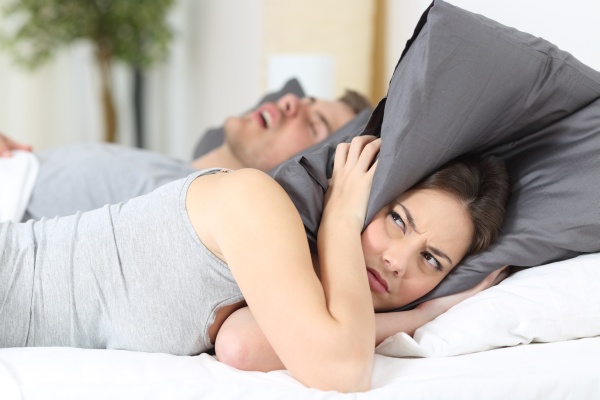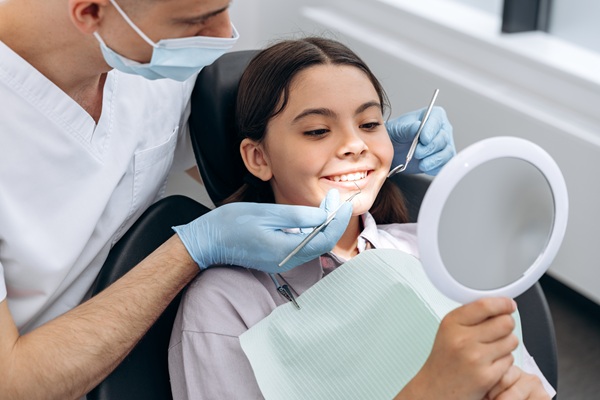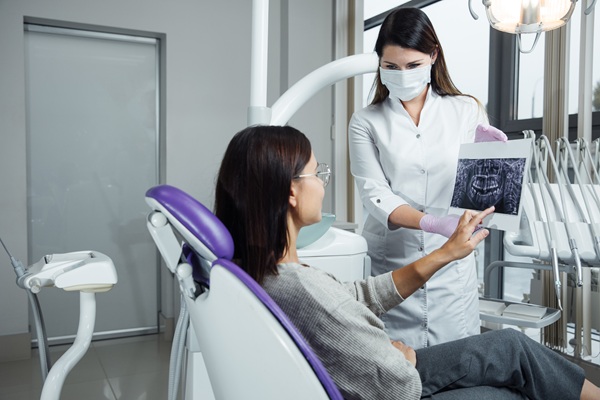Dental Help if Your Spouse Grinds Their Teeth During Sleep

The act of clenching or grinding teeth is common. When it happens frequently, it can become a problem not only for you but for your loved ones. Also known as bruxism, teeth grinding often occurs involuntarily during sleep. If you have a spouse in bed next to you that is grinding his or her teeth, you may be searching for solutions.
What causes teeth grinding?
Those who suffer from teeth grinding are often not aware of their condition since it mostly happens during sleep. If you are sleeping next to someone, though, they can usually hear the grinding and alert you. These sounds can be quite disruptive to sleep.
Bruxism has many causes. It is commonly triggered by stress, missing teeth or a misaligned bite. If you grind your teeth during the day, stress and anxiety are the main culprits, while during sleep it is almost always due to problems in the bite.
Sometimes, teeth grinding is caused by a sleep condition called Upper Airway Resistance Syndrome (UARS). The airway narrows during sleep, triggering a stress response that prompts the jaw to jut forward as a reflexive response to the change in air intake. The reflex of pushing the jaw forward allows air to flow freely, but an unfortunate side effect is teeth grinding.
Symptoms of teeth grinding
If you wake up with a sore jaw, headache or any tooth tenderness, you may be suffering from sleep bruxism. Other signs include:
- Changes in teeth shape
- Tooth nerve pain
- Jaw tenderness
- Fractured teeth
- Loosened teeth
Why is teeth grinding destructive?
The frequent gnashing and grinding of teeth can eventually cause problems to your oral health if left unchecked. The constant wear can grind teeth down to the nerve, causing sharp pains. Grinding can also reshape the teeth unfavorably. In advanced cases, bruxism will cause tooth fracture and, ultimately, tooth loss.
How to stop grinding your teeth during sleep
After a full analysis of your bite, your dentist will recommend the use of an oral apparatus that holds the jaw in place while sleeping to allow free airflow and put a barrier between teeth. Mouthguards can be a useful, if temporary, solution, that merely protect your teeth from making contact with one another.
Keep in mind that dental appliances designed for grinding only treat the symptoms, not the cause of teeth grinding. Talk to your dentist to find out more permanent solutions.
Other tips to prevent sleep bruxism
- Avoid chewing gum
- Avoid alcohol and caffeine
- Train yourself to consciously relax your jaw muscle
- Employ stress relief techniques
- Consider realigning your bite
- Try crowns or dental implants for missing teeth
Your dentist will examine the mouth and jaw to spot any telltale signs of teeth grinding. Teeth abnormalities, jaw tenderness and nerve sensitivity on otherwise healthy teeth can all point toward bruxism. Your dentist can recommend an oral appliance that fits your spouse’s needs and stops the effects of teeth grinding. This way, you can finally get some rest.
Request an appointment here: https://clarisseatakhaniandds.com or call Clarisse Atakhanian DDS Inc. at (818) 483-9071 for an appointment in our Glendale office.
Recent Posts
Most people visit the dentist once or twice a year, but it is impossible to know when a visit to an emergency dentist might be necessary. These dentists work on issues that must be treated immediately and cannot wait for a scheduled appointment. For people who are experiencing an issue with their dentition, knowing whether…
Emergency dentists treat a range of oral health concerns, including toothaches. A minor toothache may not be an emergency, but a severe toothache that lingers for an extended period of time or suddenly worsens likely requires immediate dental care to prevent any additional oral health concerns and ensure ideal long-term oral health. This review highlights how…
It sounds surprising at first, but it is absolutely true: Toothaches can be caused by sinus issues. If you appear to have a toothache but cannot find a cavity, infected food or damage to the tooth, it may be time to consider that the pain is being caused by another part of the body.For starters,…
Preventing a dental emergency is important for avoiding unnecessary dental pain, time and expense. If one can avoid a dental emergency, it is necessary to take the steps to do so. Preventative care will make it unlikely that you will need to take time off of work suddenly, need to spend a lot of money…


